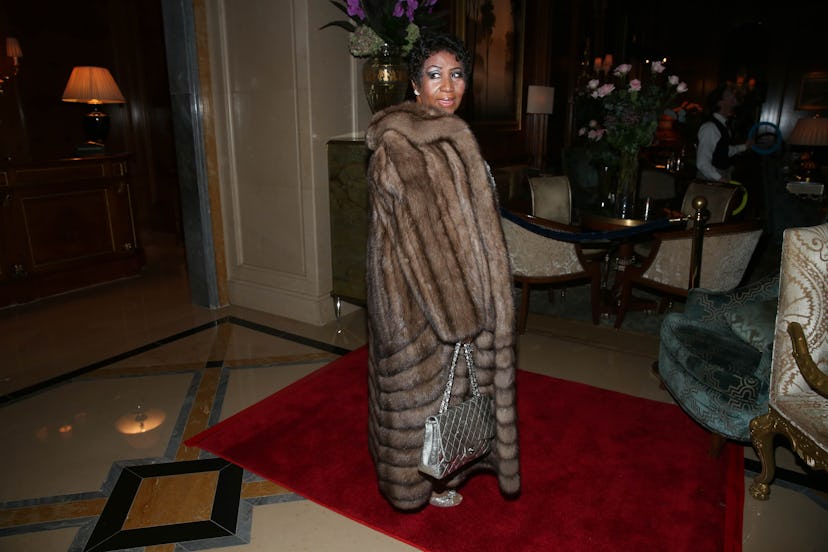Why Aretha Franklin’s Wit and Shade Resonates So Much

“Aretha Franklin dying on Madonna’s 60th birthday and taking all the attention is the ultimate diva shade moment of all time,” read a tweet that found its way onto my dash board within the immediate hours after the announcement of Franklin’s death. “Truly iconic.”
It didn’t take much scrolling to find another: “Y’all rlly gonna ignore her entire career as a black woman who’s a trailblazer in the music industry and share her petty comments about other artists,” this one read. “It’s very disappointing to say the least.”
Indeed, for much of the rest of the day it was as if Twitter were commemorating the legacy of two different women. One who had left an indelible mark on American music while serving as a voice for both the Civil Rights and feminist movements, and another a caricature of a woman who had once jumped past commenting on Taylor Swift’s musical attributes to instead compliment her gowns. The queen of soul, the queen of shade.
The reality, though, is that’s impossible to split the two. Much like Franklin was gifted with the instincts to change up a song to make it a classic all of her own and to shrug off her fur coat on stage at the right moment to make the crowd go wild, she also knew when to drop a zinger in an interview for maximum effect. After covering “Rolling in the Deep” on a covers album, she was once asked what song of hers she’d like to hear Adele cover in return. “Well, hopefully one I wrote and published,” she chimed back without a beat. Other times, she used that talent for wit and shade to demand respect for herself.
A letter Franklin wrote to the late gossip columnist Liz Smith after the queen of gab insulted Franklin’s taste in gowns and her curves went viral yesterday after popping up on the Twitter feed of Letters of Note.
[#undefined: undefined]
[#undefined: undefined]
[#undefined: undefined]
[#undefined: undefined]
[#undefined: undefined]
“When you get to be a noted and respected fashion editor please let us all know,” Franklin replied in part, before singing off with a postscript worthy of the mirror on RuPaul’s Drag Race.
Others pointed to a good natured interview with Wendy Williams, in which Franklin was able to get in more friendly barbs at Williams herself than the host is accustomed to. Compilation videos of Franklin’s “best moments of Shade” made the rounds.
Franklin was quick, she was blunt, she wasn’t afraid to tell it like it was, and she certainly wasn’t going to let anyone besmirch her name without having her say on the matter.
It’s a nature that stands in stark contrast to so many celebrities today, whose images are carefully crafted to the point where stars won’t even give traditional interviews to actual journalists anymore, and when they do they’re often short and tightly controlled.
Entertainers (or non-entertainers who just happen to be famous, as is increasingly the case) build their fame on an image of one sort or another, and take pains to make sure that image isn’t shattered.
Aretha never had to worry about such things. She could say what she wanted in interviews, and didn’t mind risking the spark of a few public feuds. Her legacy and fanbase was built on actual talent. We’re sure she had public relationship experts in her employ over the years, but who really needs that when her voice and talent alone did all the work that needed to be done?
Her reputation as the queen of shade and queen of soul stem from the same sources: her authenticity and lack of artifice, her commitment to channeling the truth, and her immense confidence in her own talent. You can’t have one without the other. To anyone boiling her down as just a caricature who said a funny thing about Mariah or Taylor once, well, that’s their loss.